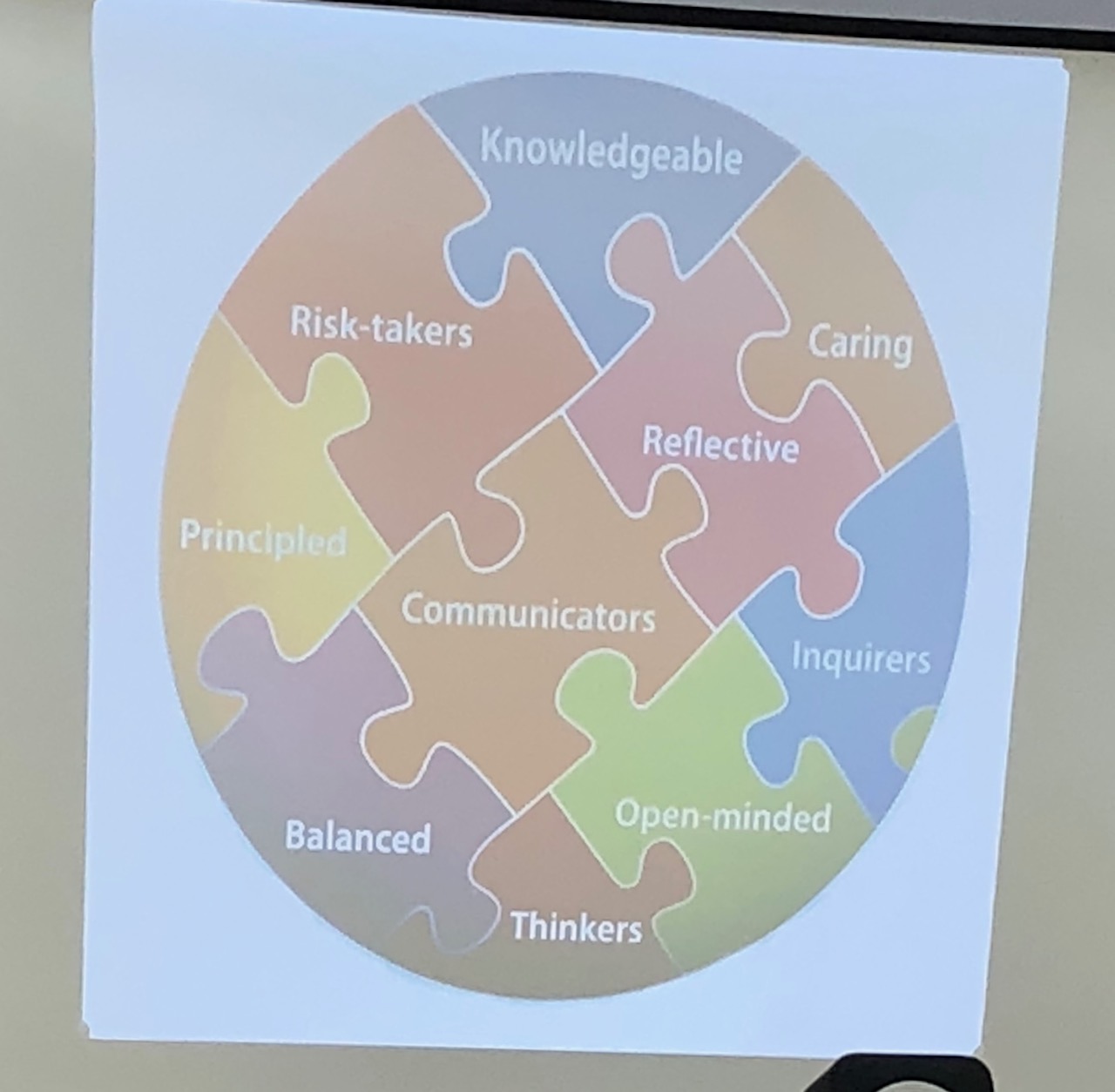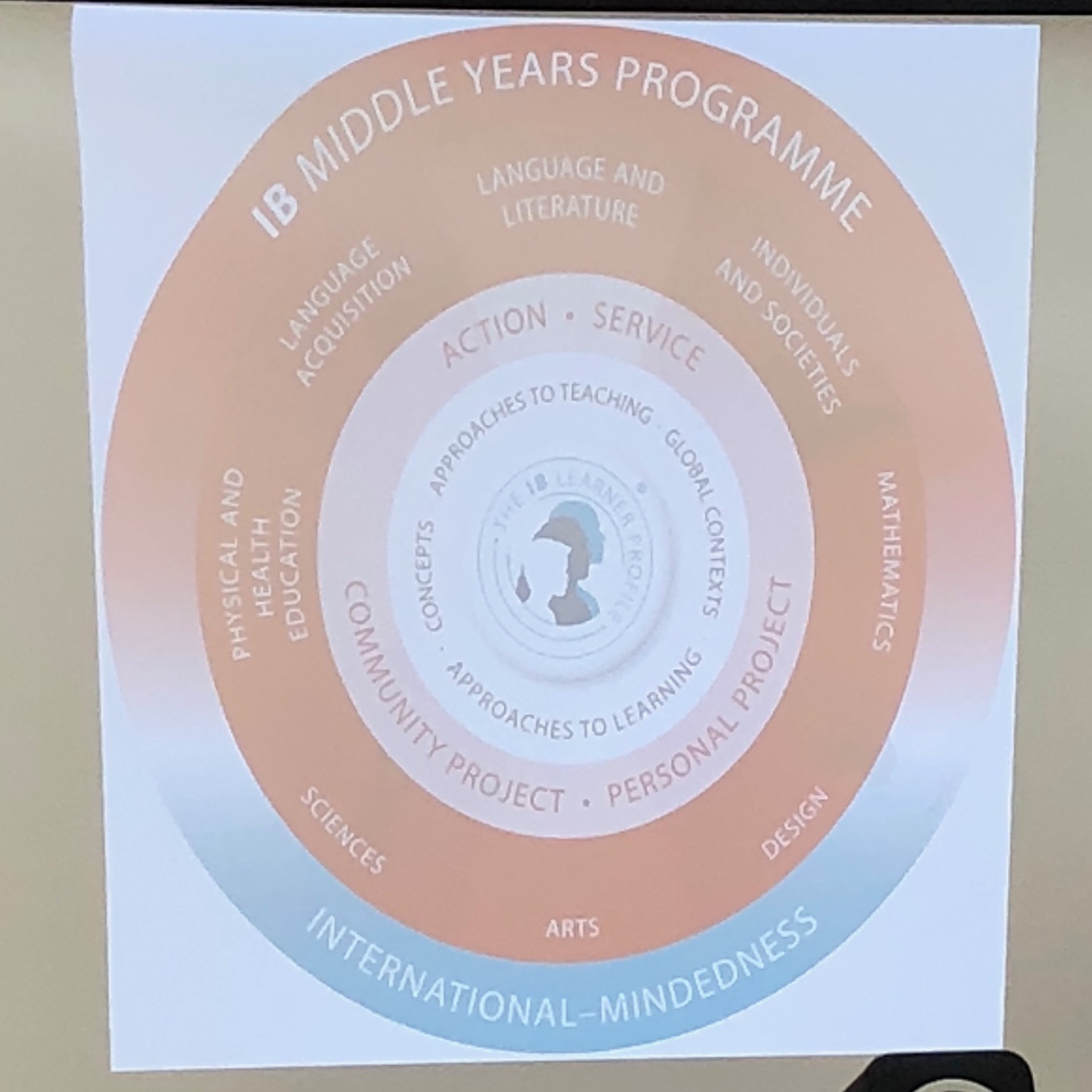WFM Parent Coffee: What is the International Baccalaureate Program?
Brought to you by the WSF-PR WIRE. The Waterfront School Foundation Parent Report Wire provides summaries of parent attended school events such as Parent Coffees and Curriculum Nights written by WSF members. The intention of the WIRE is to provide information to parents that may not have been able to attend the event in person. If you are interested in becoming a Parent Reporter, please fill out this form.
Parents were invited by WFM to hear a presentation on our IB Middle School by Mr. Andrew, the IB Coordinator & IB Middle School Math teacher. To start, Mr. Andrew asked parents to write down three skills that they believe are necessary in order to have a successful and fulfilling personal and professional life. The answers were to be discussed later in the presentation.
Mr. Andrew gave the history and background on the IB (International Baccalaureate) educational program. He provided some statistics on the prevalence of IB schools throughout the world (roughly 4500+ schools worldwide with 1.8+ million students). There are four types of IB programs based on age - WFM teaches the Middle Years Program (MYP) which is for children ages 11-16. It was interesting to note that if a child goes on to an IB high school, they will continue to be in an MYP through 10th grade (at which point they would transition into the Diploma Program).
A portion of the presentation was spent discussing the profile of an IB learner (see photo below). We noticed that many of the skills written down in our opening activity were evident in the traits developed by an IB program.
This is what the learner profile looks like in action:
- Students are:
- Making choices and decisions
- Using materials in flexible and manageable ways
- Initiating inquiry and asking questions
- Working collaboratively
- Sustaining their interest and expanding their knowledge
- Developing their conceptual understanding
Mr. Andrew described the ways in which IB is a natural fit for Montessori students. These learner profile traits of an IB student align with the characteristics of Montessori.
There are 8 subject areas for the Middle Years Program. Much of the work is interdisciplinary, crossing multiple subject areas at once. "Science isn't just science and art isn't just art". Most projects aim to incorporate different areas. Service learning was also prioritized in this curriculum. At WFM, all Middle School students engage in some level of community service, such as reading to children at the York Street Project. In addition, all 8th grade students create a community action plan and 12 hours of commitment to their plan.
A major takeaway from this talk was that PROCESS IS KEY! The focus on the process is what allows for growth and a joy of learning. In contrast to a traditional school where facts are memorized, the IB approach allows for the process to lead the way to the outcomes.
Mr. Andrew gave various examples of the innovative ways the Middle Schoolers are learning. One example to highlight was learning in context. A group of students measured the length (in time) of choruses of popular songs. They created proportions of the chorus length to song length and then further went to see if there was a relationship between this ratio and the number of YouTube hits for each song. In addition, they created posters where the lyrics of the chorus took up the amount of space equivalent to its proportion of the song.
Some parent questions (and the corresponding answers) were:
- Is there homework?
- Students create a work plan at the beginning of the week. Any work that isn't completed becomes homework on Friday. (This is also to build time management skills)
- The Middle School day ends at 4 p.m. to give extra time to complete work.
- After school time is for "pursuing passions" and not additional school work.
- How are Middle School students graded?
- Each of the 8 areas is rated by the teacher on a 1-8 scale. There is a formal rubric and the process may be the discussion at a future coffee talk.
- How do Middle School students adapt to traditional high schools?
- They're very adaptable. They may question rote work that they don't see the purpose in.
- How do Middle School students do on standardized tests?
- They do practice the skill of test-taking in Middle School.
- The students do very well on high school acceptance tests - there was an anecdotal discussion of high schools where alumni went on to.
- How many Middle School students are there?
- 11 6th graders
- 12 7th graders
- 7 8th graders
Mr. Andrew did a fantastic job of discussing the benefits of the IB curriculum at WFM.




